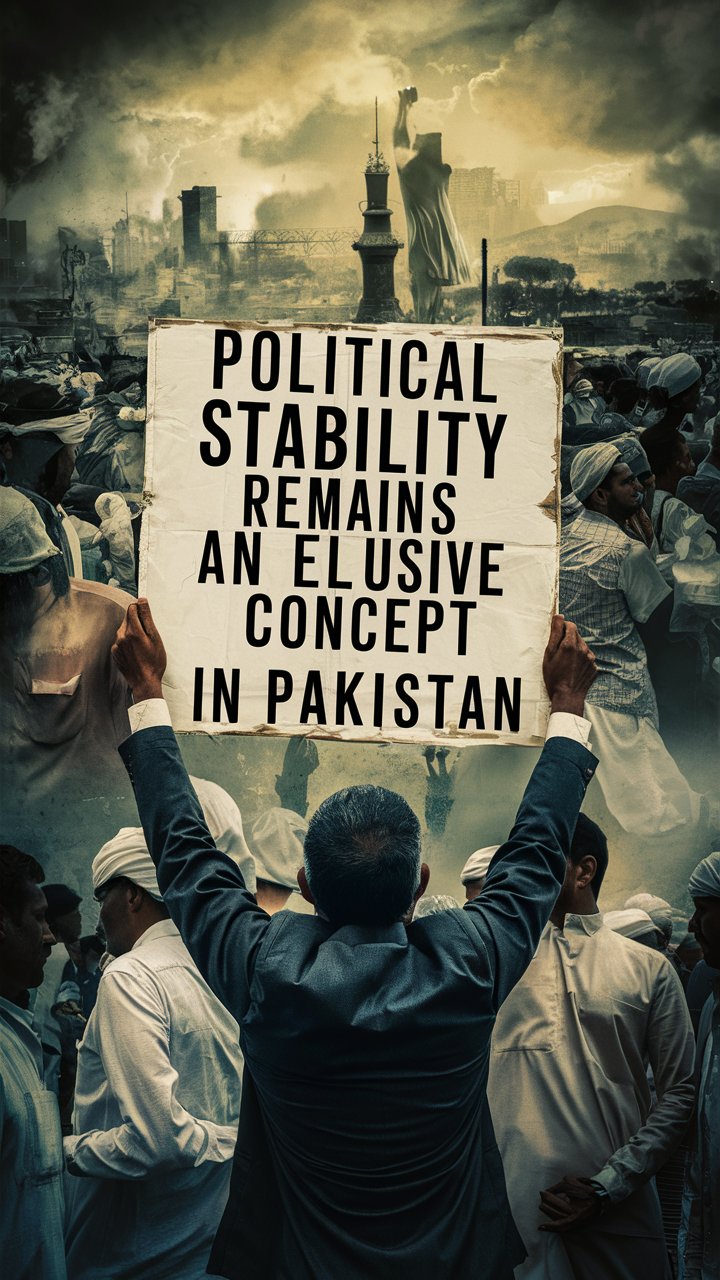Q.No. 2. Political stability remains an elusive concept in Pakistan.
Explore the factors contributing to the fractured nature of Pakistan's polity and discuss potential reforms to the constitutional and political structure that could foster stability.

Introduction:
Political stability has remained an elusive goal for Pakistan, with its polity characterized by fragmentation, polarization, and frequent disruptions. This essay delves into the factors contributing to the fractured nature of Pakistan’s polity and explores potential reforms to the constitutional and political structure that could foster stability.
Factors Contributing to Political Fracture:
- Military Interventions:
- Historically, military interventions have disrupted democratic processes and undermined civilian governance in Pakistan. The military’s interference in politics has often led to the erosion of democratic institutions, weakening the foundations of political stability.
- Ethnic and Regional Divisions:
- Pakistan’s diverse ethnic and regional landscape has contributed to political fragmentation and polarization. Ethnic tensions, particularly between provinces such as Punjab, Sindh, Balochistan, and Khyber Pakhtunkhwa, have fueled political instability and hindered national cohesion.
- Dynastic Politics:
- The dominance of political dynasties, such as the Bhutto and Sharif families, has perpetuated a culture of nepotism and patronage, undermining meritocracy and widening socio-political divides. Dynastic politics have stifled intra-party democracy and hindered the emergence of new leadership.
- Weak Governance and Corruption:
- Weak governance, inefficiency, and rampant corruption have undermined public trust in political institutions and fueled disillusionment with the democratic process. Corruption scandals and governance failures have exacerbated socio-economic inequalities and eroded confidence in the political establishment.
- Religious Extremism and Militancy:
- The rise of religious extremism and militancy poses a significant threat to political stability in Pakistan. Extremist groups and terrorist organizations challenge the authority of the state, undermine democratic values, and exacerbate security challenges, leading to further political turmoil.
Potential Reforms for Political Stability:
- Constitutional Reforms:
- Strengthening the constitutional framework to ensure the supremacy of civilian institutions over the military is essential for promoting political stability. Reforms should include clear delineation of powers, institutional checks and balances, and mechanisms for civilian oversight of the military.
- Electoral Reforms:
- Implementing electoral reforms to enhance transparency, accountability, and inclusivity in the electoral process can help restore public trust in democratic institutions. Reforms should address issues such as campaign finance regulations, electoral fraud, and manipulation, and promote fair representation of diverse voices.
- Devolution of Power:
- Further devolution of power to the provincial and local levels can empower communities, address grievances, and promote political inclusivity. Strengthening local governments and ensuring equitable resource distribution can mitigate ethnic and regional tensions, fostering national cohesion.
- Merit-Based Governance:
- Instituting merit-based recruitment and promotion systems in the civil service and government institutions can combat nepotism and corruption, fostering a culture of accountability and professionalism. Reforming bureaucratic structures and promoting transparency in decision-making processes are essential for effective governance.
- Counter-extremism Strategies:
- Implementing comprehensive counter-extremism strategies, including ideological counter-narratives, deradicalization programs, and law enforcement measures, is critical for combating religious extremism and militancy. Addressing root causes of radicalization, such as socio-economic marginalization and ideological indoctrination, can help mitigate security threats and promote political stability.
Conclusion:
In conclusion, achieving political stability in Pakistan requires addressing a range of interconnected factors, including military interventions, ethnic divisions, dynastic politics, governance failures, and security challenges. By implementing reforms to strengthen democratic institutions, promote inclusivity, combat corruption, and address extremism, Pakistan can pave the way for a more stable and prosperous future. However, the path to political stability will require sustained political will, consensus-building, and commitment to democratic principles from all stakeholders.
visit:https://scholarshipresort.com/